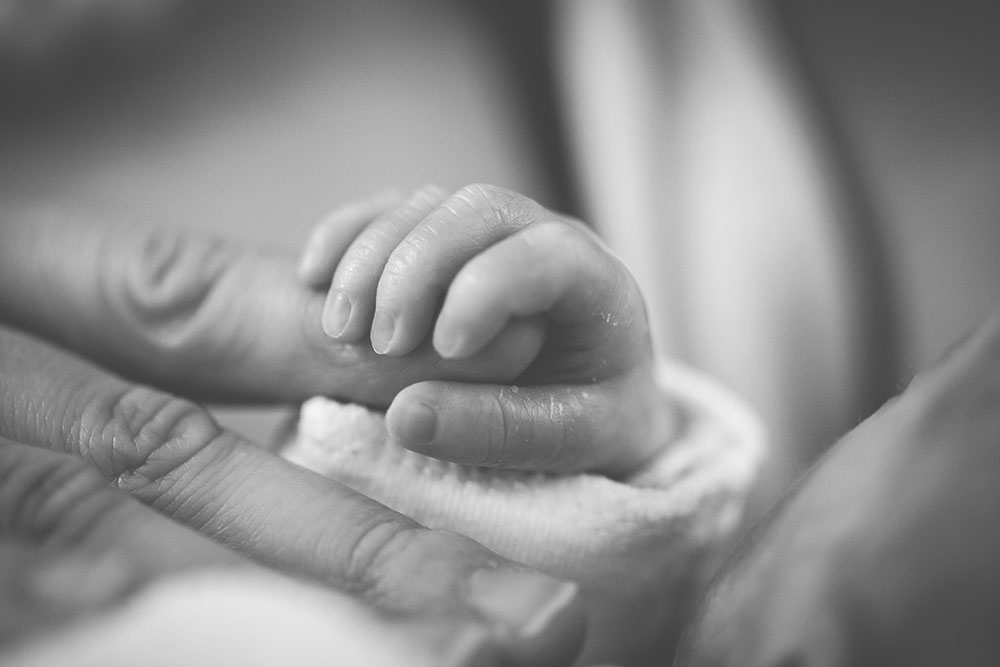What are the rules behind eating during childbirth and labor? Here’s what to do as you’re preparing for the big event.
BY: KENDRA TOLBERT, MS, RDN, CDN, CLC
Childbirth is one of the most physically-demanding events that a woman can experience in her lifetime.
In fact, giving birth can be as hard on your body as it is when you run a marathon. But unlike someone running a marathon, there’s usually no one passing out snacks or gels to a woman giving birth, or encouraging her to refuel.
Instead, many laboring women are prohibited from feeding their bodies at all.
The no-food-during-labor policy that many hospitals follow was birthed out of the desire to prevent aspiration, or choking on stomach contents that may make their way into their lungs. Changes to the way anesthesia is administered have made this less of a concern for healthy women with a low-risk labor and delivery.
Despite these changes, the no-food rule continues to reign in many labor and delivery wards.
A couple of years ago, the American Society of Anesthesiologist (ASA) issued a press release titled, “Most healthy women would benefit from light meal during labor.” That was a pretty bold statement, considering fasting during labor has long been the norm. According to the release, research suggests withholding proper nutrition during labor could cause undue stress on both mom and baby and prolong labor. Therefore, eating during labor could be quite beneficial.
After receiving quite a few comments from concerned members, the ASA attempted to clear up the controversy the release stirred up. They stated the release was simply an acknowledgment of research reviewed by a colleague, not a change in their position or guidelines.
So, what’s the bottom line? Should you eat during labor?
That depends on your unique pregnancy and labor.
If you’re considered low-risk, asking your labor team is your best bet to find out if eating during labor is a good idea for you. If your team gives you the go ahead and you’re feeling a bit hungry, here are a couple tips to help you choose the best foods for your labor.
KEEP YOUR MEALS SMALL AND LIGHT.
If you’d like to eat something and your team OKs it, then by all means enjoy your meal or snack. But remember, this isn’t the time for the meal of the century. Think small and light. Just as you wouldn’t eat a huge meal during a marathon, you don’t want to eat a large meal during labor. You want something that won’t overtax your digestive system.
CHOOSE QUICK DIGESTING FOODS.
Again, think small and light. The food eaten during labor should be something that’s easily digested and will leave your stomach relatively quickly. That means staying away from too much fiber, fat, or protein.
Just as you might choose something higher in carbs and lighter in fiber, fat, and protein before or during exercise, consider choosing the same for a pre- or during-labor snack or meal.
The foods and drinks listed below fit would the bill:
- Fruit-based smoothies
- Banana and honey sandwiches
- Dried, canned, thawed frozen, or fresh fruit
- Pretzels, toast, or crackers
- Broth-based soups, maybe with noodles
- Fluids like water, coconut water, and ice chips
To date, the American Congress of Obstetricians and Gynecologists and ASA have not changed their practice guidelines, so your medical team may or may not be on board with eating during labor. The best thing to do is arm yourself with information and have a discussion with your healthcare team.
Together, reach a decision that everyone is comfortable with.
Adapted from the original article.
Kendra Tolbert, MS, RDN, CDN, CLC is a registered dietitian nutritionist, certified lactation counselor, and certified aromatherapist based in New York. Through her private practice, she helps women and couples prepare for pregnancy and enjoy healthier, happier pregnancies. Learn more about Kendra at Live Fertile.

